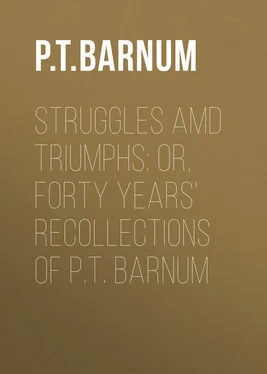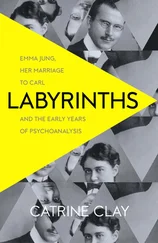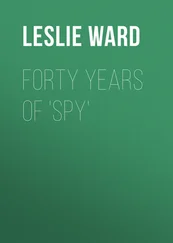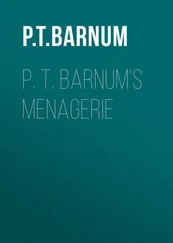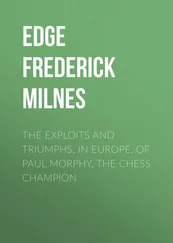Phineas Barnum - Struggles amd Triumphs - or, Forty Years' Recollections of P.T. Barnum
Здесь есть возможность читать онлайн «Phineas Barnum - Struggles amd Triumphs - or, Forty Years' Recollections of P.T. Barnum» — ознакомительный отрывок электронной книги совершенно бесплатно, а после прочтения отрывка купить полную версию. В некоторых случаях можно слушать аудио, скачать через торрент в формате fb2 и присутствует краткое содержание. Издательство: Иностранный паблик, Жанр: foreign_antique, foreign_prose, на английском языке. Описание произведения, (предисловие) а так же отзывы посетителей доступны на портале библиотеки ЛибКат.
- Название:Struggles amd Triumphs: or, Forty Years' Recollections of P.T. Barnum
- Автор:
- Издательство:Иностранный паблик
- Жанр:
- Год:неизвестен
- ISBN:нет данных
- Рейтинг книги:5 / 5. Голосов: 1
-
Избранное:Добавить в избранное
- Отзывы:
-
Ваша оценка:
- 100
- 1
- 2
- 3
- 4
- 5
Struggles amd Triumphs: or, Forty Years' Recollections of P.T. Barnum: краткое содержание, описание и аннотация
Предлагаем к чтению аннотацию, описание, краткое содержание или предисловие (зависит от того, что написал сам автор книги «Struggles amd Triumphs: or, Forty Years' Recollections of P.T. Barnum»). Если вы не нашли необходимую информацию о книге — напишите в комментариях, мы постараемся отыскать её.
Struggles amd Triumphs: or, Forty Years' Recollections of P.T. Barnum — читать онлайн ознакомительный отрывок
Ниже представлен текст книги, разбитый по страницам. Система сохранения места последней прочитанной страницы, позволяет с удобством читать онлайн бесплатно книгу «Struggles amd Triumphs: or, Forty Years' Recollections of P.T. Barnum», без необходимости каждый раз заново искать на чём Вы остановились. Поставьте закладку, и сможете в любой момент перейти на страницу, на которой закончили чтение.
Интервал:
Закладка:
A lady will attend at the hall during the afternoon and evening for the accommodation of those ladies who may call.
Mr. Bartram further stated that he had sold out his interest to his partner, R. W. Lindsay, of Jefferson County, Kentucky, who was then exhibiting Joice Heth in Philadelphia, but was anxious to sell out and go home – the alleged reason being that he had very little tact as a showman. As the New York papers had also contained some account of Joice Heth, I went on to Philadelphia to see Mr. Lindsay and his exhibition.
Joice Heth was certainly a remarkable curiosity, and she looked as if she might have been far older than her age as advertised. She was apparently in good health and spirits, but from age or disease, or both, was unable to change her position; she could move one arm at will, but her lower limbs could not be straightened; her left arm lay across her breast and she could not remove it; the fingers of her left hand were drawn down so as nearly to close it, and were fixed; the nails on that hand were almost four inches long and extended above her wrist; the nails on her large toes had grown to the thickness of a quarter of an inch; her head was covered with a thick bush of grey hair; but she was toothless and totally blind and her eyes had sunk so deeply in the sockets as to have disappeared altogether.
Nevertheless she was pert and sociable, and would talk as long as people would converse with her. She was quite garrulous about her protege “dear little George,” at whose birth she declared she was present, having been at the time a slave of Elizabeth Atwood, a half-sister of Augustine Washington, the father of George Washington. As nurse she put the first clothes on the infant and she claimed to have “raised him.” She professed to be a member of the Baptist church, talking much in her way on religious subjects, and she sang a variety of ancient hymns.
In proof of her extraordinary age and pretensions, Mr. Lindsay exhibited a bill of sale, dated February 5, 1727, from Augustine Washington, County of Westmoreland, Virginia, to Elizabeth Atwood, a half-sister and neighbor of Mr. Washington, conveying “one negro woman, named Joice Heth, aged fifty-four years, for and in consideration of the sum of thirty-three pounds lawful money of Virginia.” It was further claimed that as she had long been a nurse in the Washington family she was called in at the birth of George and clothed the new-born infant. The evidence seemed authentic and in answer to the inquiry why so remarkable a discovery had not been made before, a satisfactory explanation was given in the statement that she had been carried from Virginia to Kentucky, had been on the plantation of John S. Bowling so long that no one knew or cared how old she was, and only recently the accidental discovery by Mr. Bowling’s son of the old bill of sale in the Record Office in Virginia had led to the identification of this negro woman as “the nurse of Washington.”
Everything seemed so straightforward that I was anxious to become proprietor of this novel exhibition, which was offered to me at one thousand dollars, though the price first demanded was three thousand. I had five hundred dollars, borrowed five hundred dollars more, sold out my interest in the grocery business to my partner, and began life as a showman. At the outset of my career I saw that everything depended upon getting people to think, and talk, and become curious and excited over and about the “rare spectacle.” Accordingly, posters, transparencies, advertisements, newspaper paragraphs – all calculated to extort attention – were employed, regardless of expense. My exhibition rooms in New York, Boston, Philadelphia, Albany and in other large and small cities, were continually thronged and much money was made. In the following February, Joice Heth died, literally of old age, and her remains received a respectable burial in the town of Bethel.
At a post-mortem examination of Joice Heth by Dr. David L. Rogers, in the presence of some medical students, it was thought that the absence of ossification indicated considerably less age than had been assumed for her; but the doctors disagreed, and this “dark subject” will probably always continue to be shrouded in mystery.
I had at last found my true vocation. Indeed, soon after I began to exhibit Joice Heth, I had entrusted her to an agent and had entered upon my second step in the show line. The next venture, whatever it may have been in other respects, had the merit of being, in every essential, unmistakably genuine. I engaged from the Albany Museum an Italian who called himself “Signor Antonio” and who performed certain remarkable feats of balancing, stilt-walking, plate-spinning, etc. He had gone from England to Canada, and thence to Albany, and had performed in other American cities. I made terms with him for one year to exhibit anywhere in the United States at twelve dollars a week and expenses, and induced him to change his stage name to “Signor Vivalla.” I then wrote a notice of his wonderful qualities and performances, printed it in one of the Albany papers as news, sent copies to the theatrical managers in New York and in other cities, and went with Vivalla to the metropolis.
Manager William Dinneford, of the Franklin Theatre, had seen so many performances of the kind that he declined to engage my “eminent Italian artist”; but I persuaded him to try Vivalla one night for nothing and by the potent aid of printer’s ink the house was crammed. I appeared as a supernumerary to assist Vivalla in arranging his plates and other “properties”; and to hand him his gun to fire while he was hopping on one stilt ten feet high. This was “my first appearance on any stage.” The applause which followed Vivalla’s feats was tremendous, and Manager Dinneford was so delighted that he engaged him for the remainder of the week at fifty dollars. At the close of the performance, in response to a call from the house, I made a speech for Vivalla, thanking the audience for their appreciation and announcing a repetition of the exhibition every evening during the week.
Vivalla remained a second week at the Franklin Theatre, for which I received $150. I realized the same sum for a week in Boston. We then went to Washington to fulfil an engagement which was far from successful, since my remuneration depended upon the receipts, and it snowed continually during the week. I was a loser to such an extent that I had not funds enough to return to Philadelphia. I pawned my watch and chain for thirty-five dollars, when fortunately Manager Wemyss arrived on Saturday morning and loaned me the money to redeem my property.
As this was my first visit to Washington I was much interested in visiting the capitol and other public buildings. I also satisfied my curiosity in seeing Clay, Calhoun, Benton, John Quincy Adams, Richard M. Johnson, Polk, and other leading statesmen of the time. I was also greatly gratified in calling upon Anne Royall, author of the Black Book, publisher of a little paper called “Paul Pry,” and quite a celebrated personage in her day. I had exchanged The Herald of Freedom with her journal and she strongly sympathized with me in my persecutions. She was delighted to see me and although she was the most garrulous old woman I ever saw, I passed a very amusing and pleasant time with her. Before leaving her, I manifested my showman propensity by trying to hire her to give a dozen or more lectures on “Government,” in the Atlantic cities, but I could not engage her at any price, although I am sure the speculation would have been a very profitable one. I never saw this eccentric woman again; she died at a very advanced age, October 1, 1854, at her residence in Washington.
I went with Vivalla to Philadelphia and opened at the Walnut Street Theatre. Though his performances were very meritorious and were well received, theatricals were dull and houses were slim. It was evident that something must be done to stimulate the public.
Читать дальшеИнтервал:
Закладка:
Похожие книги на «Struggles amd Triumphs: or, Forty Years' Recollections of P.T. Barnum»
Представляем Вашему вниманию похожие книги на «Struggles amd Triumphs: or, Forty Years' Recollections of P.T. Barnum» списком для выбора. Мы отобрали схожую по названию и смыслу литературу в надежде предоставить читателям больше вариантов отыскать новые, интересные, ещё непрочитанные произведения.
Обсуждение, отзывы о книге «Struggles amd Triumphs: or, Forty Years' Recollections of P.T. Barnum» и просто собственные мнения читателей. Оставьте ваши комментарии, напишите, что Вы думаете о произведении, его смысле или главных героях. Укажите что конкретно понравилось, а что нет, и почему Вы так считаете.
